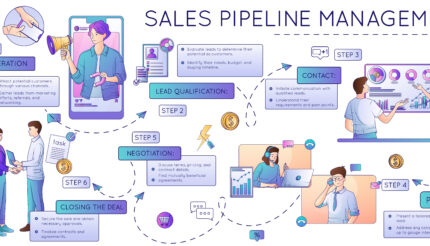Why Proper Sales Training is So Important; 10 reasons
Why Proper Sales Training is So Important; 10 reasons. Sales are the cornerstone of business success. Regardless of the sector, a company’s ability to generate revenue often hinges on the effectiveness of its sales team. Yet, many organisations underestimate the critical role training plays in cultivating a high-performing sales force. Sales training is not merely an expense; it is an essential investment for businesses aiming to remain competitive and achieve sustainable growth.
Elevating Core Competencies
Sales require a combination of skills that extend beyond natural charm or persuasion. Successful sales professionals must master various techniques, including identifying qualified leads, handling objections, negotiating effectively, and closing deals. These competencies are not inherent; they must be developed through consistent learning and refinement. Training helps to sharpen these skills, turning potential into tangible results.
In today’s complex marketplace, customers demand more from sales professionals. They expect tailored solutions and a nuanced understanding of their unique needs. Training bridges the gap between customer expectations and the capabilities of the sales team, ensuring representatives are equipped to deliver value and foster trust.
Staying Ahead in a Dynamic Market
The business environment evolves at a rapid pace. Changes in technology, buyer behaviour, and industry standards mean that yesterday’s strategies may no longer yield success. A well-trained sales team is better prepared to adapt to these shifts, leveraging the latest tools and techniques to maintain a competitive edge. Ongoing training ensures that sales professionals remain informed about emerging trends, innovations, and best practices.
In a digital-first world, integrating technology into the sales process is indispensable. From customer relationship management (CRM) software to analytics tools, technology enhances efficiency and streamlines operations. However, the benefits of these tools are realised only when sales teams are proficient in their use, underscoring the importance of training.
Enhancing Product and Market Knowledge
Confidence in sales is intrinsically linked to knowledge. Salespeople who thoroughly understand the products or services they represent can articulate their value more effectively, address customer concerns, and demonstrate how their offerings solve specific problems. Training enhances this knowledge, empowering sales teams to position products strategically and differentiate them from competitors.
In addition to product expertise, understanding the market is equally critical. Sales teams must be familiar with the competitive landscape, emerging trends, and customer pain points. Training provides the insights needed to navigate complex sales environments and capitalise on opportunities.
Building Confidence and Morale
Sales is a high-pressure profession where rejection is frequent, and resilience is vital. Confidence, therefore, becomes a key factor in achieving success. A well-trained salesperson approaches challenges with a sense of preparedness and assurance, knowing they possess the necessary skills to overcome obstacles. This confidence translates into stronger performance, higher motivation, and a more positive outlook.
Training also contributes to team morale. Employees who feel supported and valued are more likely to remain engaged and loyal to the organisation. Training demonstrates a commitment to their growth, fostering a culture of continuous improvement and mutual respect.
Consistency in Messaging and Approach
A cohesive sales strategy relies on alignment across the team. Without training, sales representatives may adopt inconsistent approaches, leading to mixed messaging and a fragmented customer experience. Training ensures that all team members adhere to a unified sales methodology and effectively communicate the company’s value proposition. This consistency strengthens the brand’s reputation and builds trust with customers.
Delivering Exceptional Customer Experiences
Sales success is not solely about closing deals; it is about cultivating lasting customer relationships. A well-trained sales team prioritises understanding customer needs, offering tailored solutions, and delivering value at every stage of the buying journey. This customer-centric approach not only drives immediate results but also fosters loyalty and advocacy.
Satisfied customers are more likely to return and recommend a business to others, amplifying the impact of a well-executed sales strategy. Training equips sales teams to exceed customer expectations, transforming transactions into long-term partnerships.
Achieving Sustainable Business Growth
The ultimate objective of training is to drive business growth. A skilled and knowledgeable sales team generates more revenue, secures higher-value deals, and nurtures stronger customer relationships. These outcomes directly contribute to the organisation’s financial health and market position.
Beyond immediate results, training establishes the foundation for long-term success. By continuously developing the capabilities of the sales team, businesses ensure they remain agile and competitive in an ever-changing landscape. Training is not a one-off investment but an ongoing process that fuels growth and resilience.
Overcoming Challenges
While the benefits of training are undeniable, there are challenges to implementing it effectively. Sales professionals often face demanding schedules, making it difficult to prioritise learning. Additionally, the fast-paced nature of sales can lead to resistance to change, with some team members hesitant to adopt new techniques or technologies.
However, organisations that commit to fostering a culture of learning and development ultimately reap the rewards. The return on investment is evident in increased productivity, improved morale, and higher revenue. Training is a strategic necessity that pays dividends far beyond its initial cost.
The Evolving Role of Training in Sales
As the sales landscape evolves, so does the role of why proper sales training is necessary. Emerging technologies, such as artificial intelligence and virtual reality, are reshaping how sales teams learn and operate. These innovations provide new ways to enhance skills, analyse performance, and simulate real-world scenarios.
Additionally, the growing emphasis on personalisation and customer-centricity highlights the need for advanced training in areas such as emotional intelligence, active listening, and problem-solving. Modern sales training goes beyond transactional skills, focusing on building meaningful connections and delivering exceptional value.
A Strategic Advantage
Why proper sales training: Investing in sales training is an investment in the future of your business. It equips your team to navigate challenges, seize opportunities, and deliver results. More than a tool for individual growth, training drives organisational success by fostering a culture of excellence and continuous improvement.
In today’s competitive landscape, the difference between thriving and merely surviving often comes down to the effectiveness of your sales team. By prioritising training, businesses position themselves for sustained growth, stronger customer relationships, and leadership within their industry. A well-trained sales team is not just an asset—it is a strategic advantage that sets your organisation apart.





